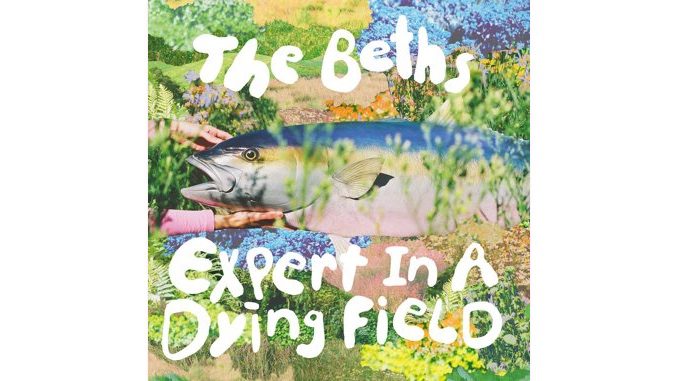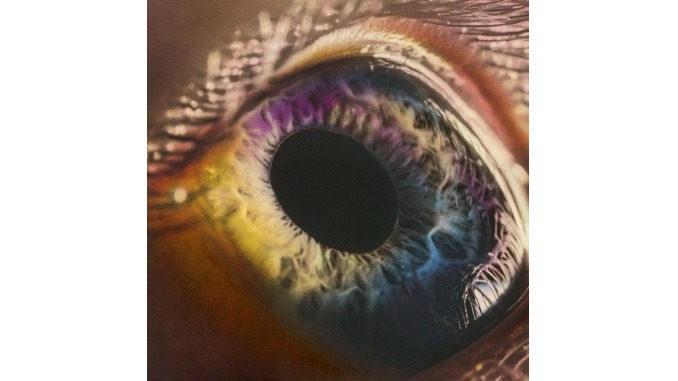Close friends and lovers have the privilege of sharing an exclusive language. And while the joy of knowing another so acutely feels unmatched, the risk of loss runs even higher—if the love affair fizzles or the friendship fades, not only is an alliance broken, but also an entire empire shattered with it. But like an anthropologist who specializes in a dead language or a long-extinct civilization, the parties to the ex-relationship are liable to remain fluent in that shared tongue—they just have no one to speak it with. The Beths’ Elizabeth Stokes introduces the perfect metaphor for this tragedy on the first track of the band’s latest LP: “Love is learned over time / ‘til you’re an expert in a dying field.”
Stokes spends the rest of the band’s electrifying third studio LP, also called Expert in a Dying Field, explaining exactly how it feels when you’re that lonely expert, and more specifically how it feels to weather such a scenario in the year 2022, all while cranking out the catchy-as-hell pop-rock melodies The Beths have become known for since the release of their breakout 2018 debut Future Me Hates Me.
In the four years since Future Me, the New Zealand-based band (comprising Stokes, guitarist Jonathan Pearce, bassist Benjamin Sinclair and drummer Tristan Deck) have established themselves as one of the most consistent rock bands working with their unbeatable formula of guitar pop and anxious indie. Dying Field stays the course sonically, picking up where the crunchy guitars and cool vocals of 2020’s Jump Rope Gazers left off, but there’s a renewed energy that had wavered slightly on their sophomore offering. While Stokes has proved herself a perceptive lyricist since day one, Dying Field contains some of her sharpest lines yet.
Single “Silence Is Golden” is a standout alongside the title track and provides one of the most memorable refrains in rock music this year: After bemoaning the “sufferingly loud” noises that close in on everyday modern life, Stokes repeats “the sound” over and over before adding, “I’d burn the city to the ground to turn it down.” Her knack for wordplay shines again on the excellent “Your Side,” where Stokes admits to “mixing drinks and messages.” And later, on the band’s love letter to ‘90s indie, “When You Know You Know”—which takes cues from the New Radicals’ “You Get What You Give”—she’s “never seen a heart in a worse condition / pinning all my hopes to the wrong pincushion.”
The quartet spend much of the rest of the album running at the hurried pace that defines their best songs (“Little Death,” “I’m Not Getting Excited”). “I Want to Listen” emits a jauntiness worthy of a Belle and Sebastian track, while the group tries their hand at Built to Spill-esque alt-rock on the scuzzy “Best Left.” Drummer Deck is the enthusiastic guide on a trio of thundering weather-related songs (“Head in the Clouds,” “A Passing Rain” and “Change in the Weather”): “Clouds” is a scorcher, both musically and lyrically (“Your head’s in the clouds / But your soul’s in the dirt”), while “Weather” and “Rain” are slightly more subdued and self-effacing (“The winter knocked me out / Frozen in an avalanche of doubt,” Stokes sings).
Stokes relentlessly questions her past actions and motives throughout Dying Field (and throughout The Beths’ catalog), but rather than sounding like a woman trapped in her own past, she somehow postures herself as a level-headed historian who just wants to understand the mistakes of a bygone era. “I wish that I was brave enough to dive in,” she proclaims on “Knees Deep.” “But I never have been and never will be.” On “I Told You That I Was Afraid,” Stokes recalls revealing that social anxiety to someone else, only to be called a fool. And on the title track, Stokes asks, “Can we erase our history / Is it as easy as this?” She’s constantly caught between an ache for vulnerability and the fear of tripping over her words again. But the band never sacrifice their intense likability in working through these ideas, even when the subjects in their songs are faltering, or acting like dirtbags.
The Beths are responsible for some of the best rock melodies of the last half-decade, and Dying Field is just another stop on the earworm express. With their first two LPs, they proved themselves to be self-aware witnesses to their own histories and heartbreaks. With the third, however, The Beths solidify themselves as expert observers of the joy and anxiety that define our time.
Ellen Johnson is a former Paste music editor and forever pop culture enthusiast. Presently, she’s a copy editor, freelance writer and aspiring marathoner. You can find her tweeting about all the things on Twitter @ellen_a_johnson and re-watching Little Women on Letterboxd.
Revisit The Beths’ 2019 Paste session below.




